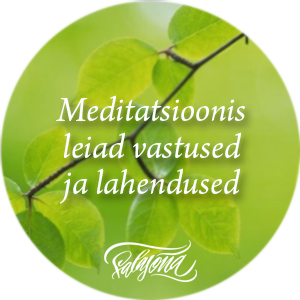Kadi Kütt
A human being is still striving for a higher level of self-esteem. In therapy, this is undoubtedly topic number one. But some time ago, Kerttu Mäger, an MA in psychology at the University of Tartu, wrote that boosting self-esteem is a slippery path, as high self-esteem can also be associated with many negative factors like selfishness, narcissism and self-deception. She recommends that people be friends with themselves instead. Good suggestion! But how do you become friends with yourself?
Self-compassion compensates for lack of self-respect
Every person wants to feel valuable. It determines our thinking and behaviour; it depends on whether we dare to build relationships and accept the challenges of life.
Finnish social psychologist Saara Kinnunen (author of Longing for Dad) speaks of different types of self-respect. The first is in childhood, immediately after birth. The parents’ attitude towards the child largely determines whether the child feels valuable or inadequate in later life. It is crucial that:
- the child has felt the parents’ love;
- the child has felt safe and protected;
- the parents have had time for the child and have enjoyed being with the child;
- the parents have recognised the child;
- the child has heard the encouragement and enthusiasm from the parents’ mouths and thus dares to pursue his/her dreams.
Later experiences with schoolmates, teachers and friends are also added to childhood experience. When our companions approve of us, and teachers give us enough recognition, important stones are laid to build a wall of self-respect. However, if we have not had the factors mentioned above or did not have enough of them, we tend to believe that we do not deserve care and love. It creates a sense of uncertainty that can lead to emotional isolation and an inability to enter into close and stable relationships in later life.
Another component of dignity or self-respect is earned self-respect, which has a crucial place in all the successes and failures of life so far. If we have been deprived of the care and love needed to feed our self-respect in our childhood, we often manage to compensate for a lack of self-respect with good performance and results that receive praise. Kerttu Mäger also points out in her article that good grades at school, promotion, pay rise or other work-related achievements, acknowledgements, compliments, many “likes” on Facebook and so on have boost self-respect.
But at the same time, earned self-respect can collapse in times of crisis. If a spouse abandons you, if a friend betrays you, if you lose a job, or if you have health problems, it can be a severe blow to the self-confidence of even the most well-balanced person. Then a self-esteem that is based on standards and built up to achieve something might not withstand the pressure, and so the person in trouble cannot rely on anything. Satisfaction and pride are replaced by disappointment and shame. From this situation, it is only a short step to anxiety and depression.
What if, in childhood, there is not a strong enough foundation for self-respect, and self-esteem, which is mainly dependent on the outside world, is fragile and easily shaken? Here we come to self-compassion. This means that you treat yourself amicably and you are nice to and go easy on yourself, even if not everything is going well in life, and even if you have made a serious mistake or feel like a failure.
Stop and admit your pain
Our society has its own cult of being strong. We tend to deny or suppress our pain and suffering, because looking at it hurts, or feels dangerous, because nobody likes failure.
But before you admit that you’re having a hard time or that you’ve been hurt, you can’t feel sorry for yourself. “That is the case now. I feel bad. I am offended, disappointed, angry, sad… Sorry it has gone so bad with me.” When you fight a painful situation or an emotion rising to the surface, you dig a deeper hole for yourself.
Accept your imperfection
People have a very foolish habit of cursing themselves in the event of failure: “I’m such an idiot! How could I?! I am completely helpless. I did it again!” We keep repeating this to ourselves, because this kind of wipeout seems normal and habitual.
Give yourself a break! You don’t have to know everything or be able to do everything. You can make mistakes; you have the right to learn and practise. You can decide something and then change your mind. This is your life.
If something goes wrong, ask yourself how you would react if a friend of yours was in a similar situation. I believe you would understand and comfort, not rebuke. Why do we treat ourselves in the worst way? Most certainly because we have been treated like this in our childhood. Many of us have not had a good role model to teach us to value ourselves.
One of the most effective ways to be a friend is to notice and stop your inner self-critical monologue. Yes, this needs practising because you’ve most likely been telling yourself for years or decades what an idiot you are. Stop this! That’s what you say to yourself. Every time you notice you’re turning against yourself – stop it right away. “Yes, it didn’t turn out well, but I couldn’t do it in a different way. I’m human, I’m not perfect.” And from there on, “I love and recognise myself exactly as I am.” That last sentence is a much-repeated one; it may sound like a cliché, but it works well nevertheless.
Share comfort and be gentle with yourself
Being gentle with yourself is essential, in addition to putting a stop to self-criticism. You must learn to comfort yourself, just as you would comfort a friend or a child in distress. Tell yourself a few kind words or write yourself a beautiful letter, hug yourself, give yourself a caress. Sounds too easy? Try and you will feel the body calm down and relax (due to absorption of the hormone oxytocin in the blood). On such occasions, I notice how I automatically put my hand on my chest, above my heart, and give myself a caress. I said something not nice about myself again! Why? No need. A caress gives warmth, tenderness and compassion; it reduces insecurity and frustration. The pain can begin to ease.
If you’re going through a bad time in your life, allow yourself to have nice things. They may be small things, but they invigorate your soul: reading a book, watching a favourite TV series, solving crossword puzzles, singing, dancing, poetry, listening to music, handicrafts, jogging, walking, a tasty bite or a refreshing drink. Make a list of your favourite activities, pick one out, and start with it right now.
Insecurity, being weak and making mistakes go hand in hand with being human. They don’t define your value, they’re just part of you. And let them be, for God’s sake! But the other part – compassionate and friendly you – exists as well. That part of you knows best how you feel and what you need, and that’s why that’s the best person to give you care and love. That’s your best friend. Find it inside you!













0 Comments